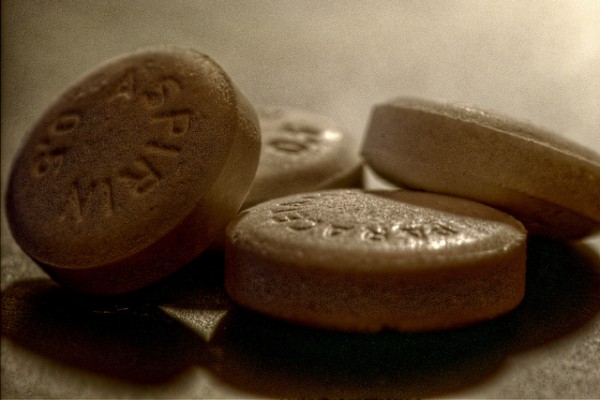Your DNA Determines if Aspirin Helps Prevent Cancer

It has long been known that taking aspirin can help reduce a person's chances of developing colon cancer, but a recent study finally explains for why aspirin works as a stronger deterrent for colorectal cancer for some people than it does for others.
According to a study published in Science Translational Medicine, people who have high levels of a particular enzyme are more likely to see a reduction in colon cancer risk after taking aspirin, compared to people who exhibit low levels of that enzyme.
The Enzyme, hydroxyprostaglandin dehydrogenase 15 (15-PGDH) is theorized to be instrumental in process that allows aspirin to effectively reduce prostaglandins -- the molecules that promote growth of colon cells and inflammation that may lead to colon cancer.
According to the study, aspirin serves only as a inhibitor of prostaglandins, but 15-PGDH actually removes pre-existing versions of the molecules in the human body. Normally, the enzyme serves only as a regulator, eliminating old prostaglandins that can then be replaced by new copies of the molecules. However, with aspirin thrown in the mix, production of prostaglandins is suppressed, and levels of these molecules are lowered -- effectively reducing an individual's chances of developing colon cancer as a result.
This then explains why aspirin is a less effective preventive measure for people with lower 15-PGDH levels.
According to the study, the prevalence of 15-PGDH is tied directly to the expression of certain genes. People without this 15-PGDH gene expression naturally had lower levels.
In a long-term analysis of the effect of aspirin on 127,865 participants, researchers found that people will DNA that promoted 15-PGDH were 50 to 75 percent less likely to develop cancer later in life when taking aspirin, compared to aspirin takers without the beneficial genes.
The study was published in Science Translational Medicine on April 23.
Apr 23, 2014 03:51 PM EDT





